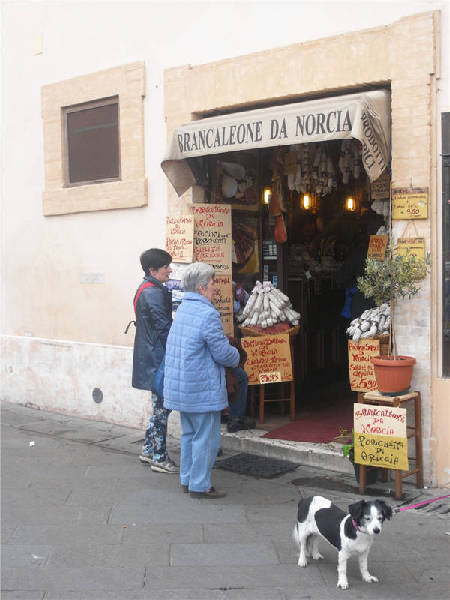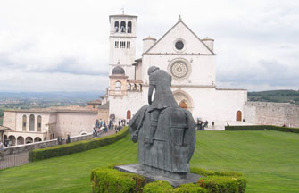Rural revelry
 |
|
Salami and chocolate shops line the small streets of Assisi in Umbria. |
We noticed olive trees, lettuce, onions and tomatoes in the garden of a house near where we stayed.
It seems collecting fresh vegetables from the garden and taking them straight to the kitchen is a daily routine for local families, who sometimes hunt for truffles and asparagus in the woods.
 |
Umbria is increasingly a destination for well-off Chinese to escape the crowds.
The gentleman who greeted us upon arrival says Chinese billionaires have slept in his castle's guest rooms, and a group of young entrepreneurs was on its way to visit.
The region is half hills, half plains.
Ancient cities were built on hills, sometimes surrounded by woods, while the fields are on the flatlands below. In Umbria's capital Perugia, we took an elevator from the parking lot halfway up the hill to the city atop.
Every street seems steep.
But two girls I made friends with told me they got used to climbing up and down in Perugia in 8-centimeter heels after a year. Heels seem to be compulsory for women in Italy. I climbed behind them in sandals, panting like a dog.
The city, which can be traced back to the 9th century BC, fought many battles but retained its heritage. It seems a Renaissance gem at first glance. But one can find arts from earlier and later times here and there.




















